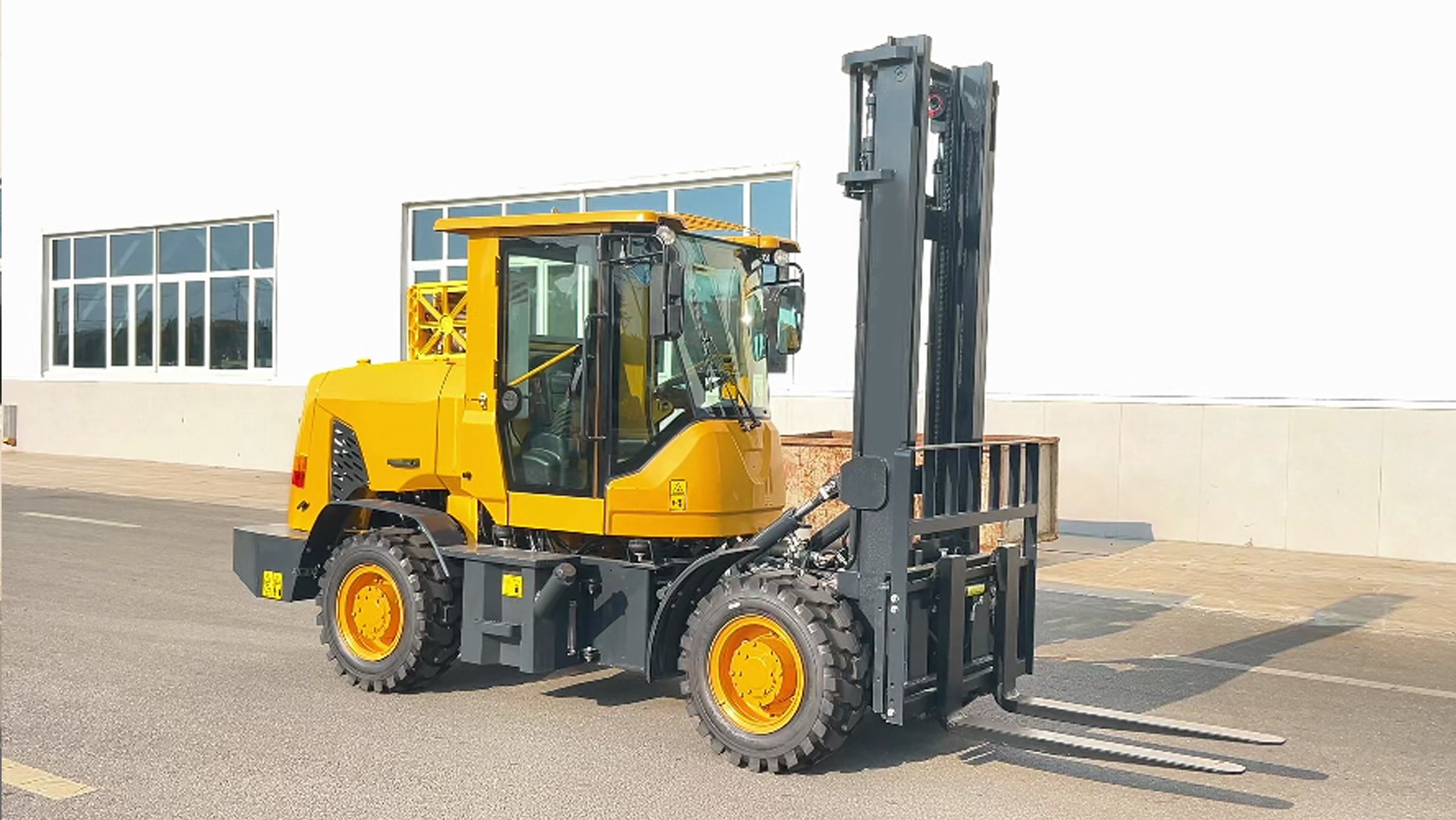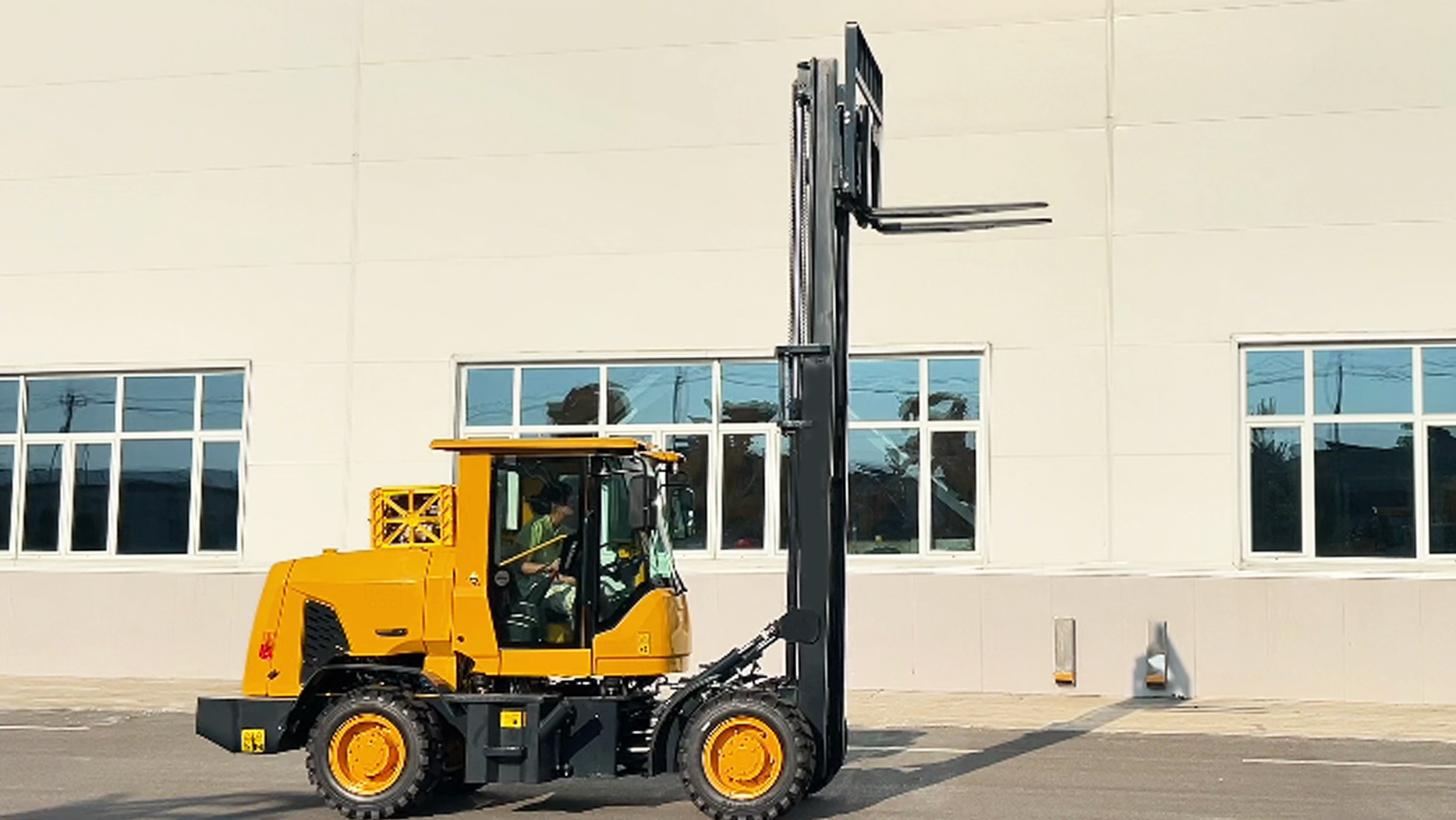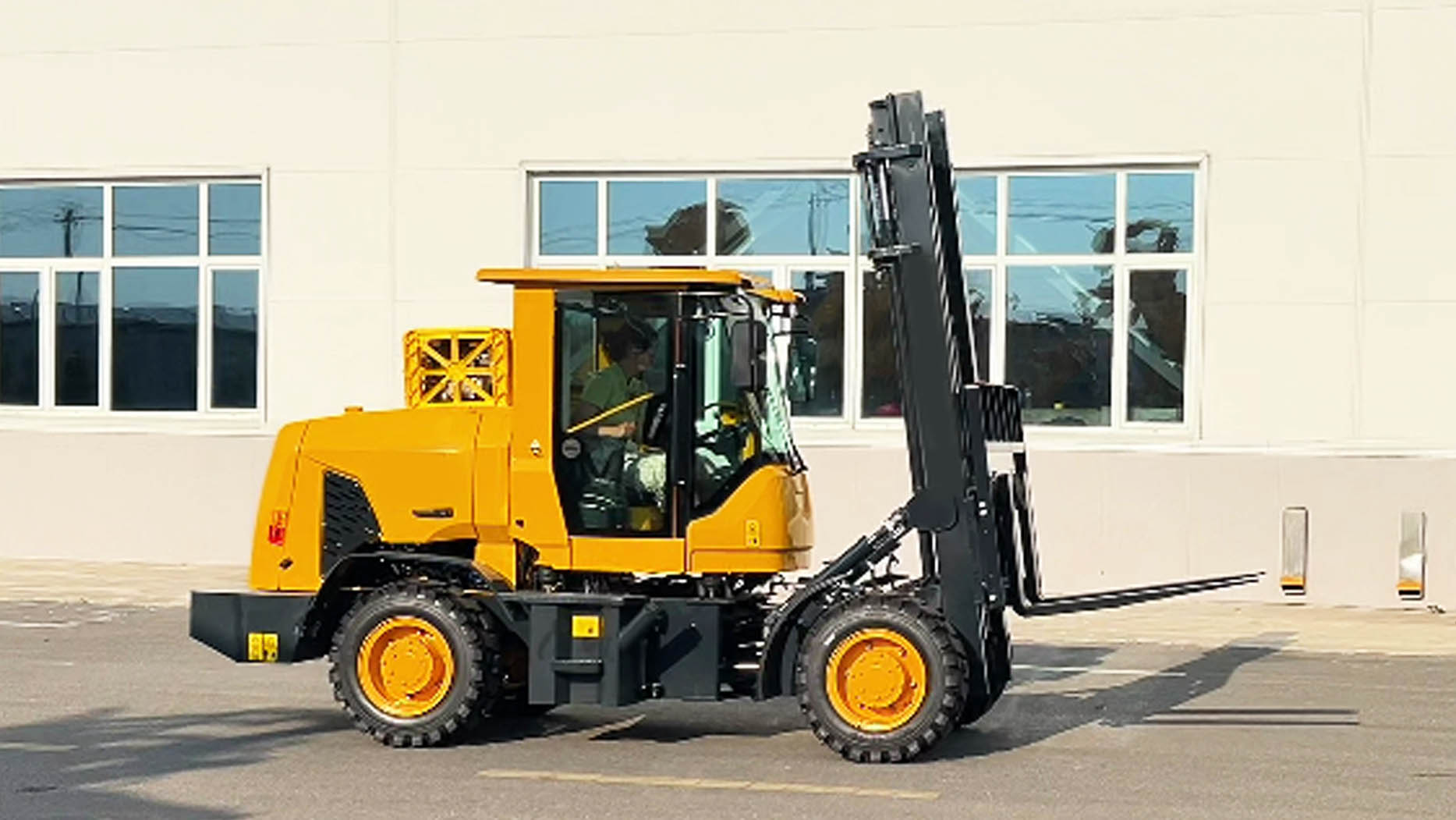For demanding outdoor applications where standard forklifts simply can't operate, the diesel rough terrain forklift is the undisputed champion of material handling. These rugged machines are specifically engineered to conquer uneven ground, mud, gravel, and steep inclines, making them indispensable on construction sites, lumberyards, farms, and industrial yards that lack paved surfaces. But what's the financial outlay required to acquire a brand-new, powerful diesel rough terrain forklift?
The cost of a new diesel rough terrain forklift can vary significantly, typically ranging from approximately $30,000 to over $150,000, with highly specialized or heavy-duty models potentially exceeding this range. This wide spectrum is influenced by several critical factors, including lifting capacity, engine power, drive type (e.g., 2WD vs. 4WD), mast height, brand, and additional features. Understanding these variables is key for businesses looking to make a strategic purchase that aligns with their operational needs and budget.
Key Factors Influencing the Price of a New Diesel Rough Terrain Forklift
The robust design and specialized features of a diesel rough terrain forklift contribute to its higher price point compared to standard warehouse models. Here's a breakdown of the elements that drive their cost:
1. Lifting Capacity:
This is arguably the most significant determinant of price. Diesel rough terrain forklifts are available in a wide range of capacities, from compact models designed for lighter loads to massive machines capable of lifting many tons.
Smaller Capacity (1.5 to 3.5 tons): These entry-level models, suitable for light construction, landscaping, or agricultural tasks, might fall in the $30,000 to $55,000 range. These often bridge the gap between a mini forklift and a full-sized rough terrain model.
Mid-Capacity (4 to 7 tons): This is a common segment for many construction, industrial, and agricultural applications, often including the popular forklift 3 ton diesel variants. Prices typically range from $55,000 to $100,000, offering a strong balance of power and versatility.
Heavy-Duty Capacity (8 tons and above): Designed for extreme lifting in demanding environments like logging, mining, or large-scale concrete handling, these can easily reach $100,000 to $150,000+, with highly specialized models going considerably higher.

2. Drive Type: 2WD vs. 4WD:
The type of drive system profoundly impacts traction and maneuverability on uneven or slippery ground.
2WD (Two-Wheel Drive): Generally less expensive, these models are suitable for moderately uneven terrain or sites with relatively stable ground conditions.
4WD (Four-Wheel Drive): These are significantly more capable and therefore more expensive. A new 4WD rough terrain forklift provides superior traction on mud, sand, gravel, and steep inclines, making them essential for truly challenging off-road environments. The premium for 4WD can add $10,000 to $30,000 or more to the price, but it's often a necessity for optimal performance.
3. Engine Power and Emission Standards:
As the name suggests, a diesel rough terrain forklift is powered by a robust diesel engine. The engine's size, power output (horsepower), and compliance with stringent emissions regulations (e.g., EPA Tier 4 Final in the US, EU Stage V in Europe) will affect the cost. More advanced, cleaner-burning engines often come with a higher price tag due to complex after-treatment systems (like Diesel Particulate Filters or Selective Catalytic Reduction).
4. Mast Type and Lift Height:
The mast's design and maximum lift height also play a role.
Duplex or Triplex Masts: These offer different lifting configurations and compacted heights. Triplex (three-stage) masts typically allow for greater lift height and are generally more expensive due to their complexity and component count.
Lift Height: Forklifts designed to lift loads to greater heights will generally cost more due to the engineering required for stability, strength, and specialized hydraulics.
Clear View Masts: Many modern designs prioritize operator visibility through the mast, which can also influence the design and cost.
5. Brand and Manufacturer:
Reputation, build quality, technological advancements, and after-sales support vary significantly across brands, directly impacting the price.
Premium Global Brands (e.g., Manitou, AUSA, JCB, CAT, Hyster-Yale, Toyota): These established manufacturers often command higher prices due to their proven reliability, extensive global dealer networks, advanced features, and strong resale value. A new model from these brands typically sits at the higher end of the price spectrum, especially for a forklift 3 ton diesel or larger.
Value-Oriented Brands (e.g., ZGLOADER/MYZG): Brands like ZGLOADER and MYZG (often part of the same or similar manufacturing groups, focused on providing cost-effective heavy equipment) have emerged as competitive options, offering new diesel rough terrain forklifts at more accessible price points. A new ZGLOADER or MYZG diesel rough terrain forklift might cost anywhere from $35,000 to $90,000, depending on capacity and specifications, providing a strong balance of performance and affordability. They often feature robust designs and offer various options like 4WD and different mast configurations, making them appealing choices for businesses prioritizing initial investment cost.

Beyond the Sticker Price: Total Cost of Ownership
While the initial purchase price is a major consideration, it's crucial for businesses to factor in the Total Cost of Ownership (TCO) over the forklift's lifespan. This comprehensive view includes:
Fuel Costs: As a diesel rough terrain forklift, fuel consumption will be an ongoing and significant expense. Factor in average consumption rates (which vary based on the factors listed above) and fluctuating diesel prices.
Maintenance and Servicing: These rugged machines operate in harsh conditions and require regular, meticulous maintenance. This includes routine fluid and filter changes, lubrication, tire replacements (which can be costly for large, specialized rough terrain tires), and potential repairs. Modern diesel engines with complex emission systems also add to maintenance complexity and cost.
Tires: Rough terrain tires are specialized and can be very expensive to replace due to their size, construction, and deep tread patterns.
Attachments: The cost of any additional attachments (e.g., buckets, jibs, specialized clamps) beyond the standard forks must be included in the overall investment.
Operator Training: Proper training for operators on how to safely and efficiently operate a diesel rough terrain forklift is crucial for maximizing productivity and minimizing accidents.
Insurance: Coverage for heavy machinery operating in challenging and potentially hazardous environments.
 Making an Informed Purchase Decision
Making an Informed Purchase Decision
Before committing to a purchase, consider the following steps to ensure you choose the right diesel rough terrain forklift for your operations:
Assess Your Needs Precisely: Define the maximum lift capacity, lift height, and the specific terrain challenges your forklift will face. Will 4WD be an absolute necessity, or can a 2WD model suffice for your typical ground conditions?
Research Brands and Models Thoroughly: Compare features, reliability, and dealer support across different manufacturers. Include both premium global brands and value-oriented options like ZGLOADER/MYZG. Inquire about their track record for durability and parts availability.
Get Multiple Quotes: Contact several dealers for various brands and models to compare pricing, standard features, warranty packages, and available options. Don't hesitate to negotiate.
Consider Financing Options: Explore leasing programs or financing plans that might make the purchase more manageable and align with your cash flow.
Test Drive/Demo: If at all possible, test the diesel rough terrain forklift in conditions similar to your typical work environment. Pay attention to operator comfort, visibility, control responsiveness, and overall machine stability.
Evaluate After-Sales Support: A strong local dealer network for parts availability, service response time, and technical support is paramount for minimizing costly downtime. This is especially true for specialized equipment that might require expert attention.
Calculate TCO: Don't just focus on the purchase price. Develop a realistic estimate of the total cost of ownership over the expected lifespan of the forklift.
In conclusion, a new diesel rough terrain forklift represents a significant investment, but one that can unlock unparalleled productivity and efficiency in challenging outdoor environments. Prices vary widely based on capacity, drive type, features, and brand (ZGLOADER/MYZG and others). By meticulously evaluating your operational demands and thoroughly researching the market, you can identify the perfect diesel rough terrain forklift that delivers both performance and long-term value, ensuring your operations keep moving forward, no matter how rugged the terrain.
Post time:Jul.04.2025
